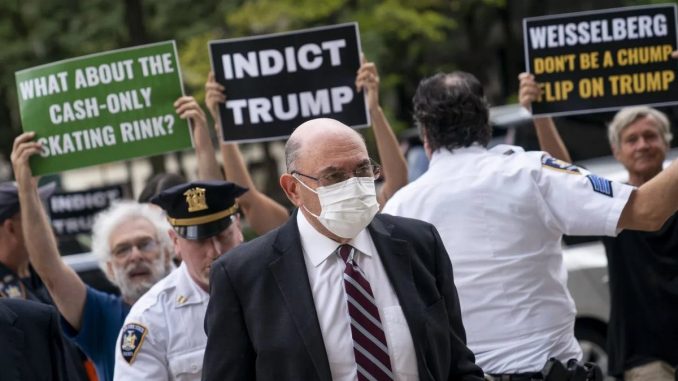
A New York jury on Tuesday found the Trump Organization guilty of tax fraud following a more than monthlong trial.
Jurors began deliberating on Monday and returned the guilty verdict on Tuesday afternoon, according to The Associated Press.
Former President Trump himself was not on trial, but prosecutors with the Manhattan district attorney’s office showed jurors evidence that Trump had signed off on bonus checks and memos that helped top executives skirt reporting on taxable income.
Following the verdict, the Trump Organization could be fined up to $1.6 million.
The outcome in the trial, which began in late October, is considered a victory for the Manhattan district attorney’s office. It followed a three-year probe by the office into whether top executives at the company engaged in tax fraud from 2005 to June 2021.
Prosecutors rested their case in late November after just eight days of arguments.
Much of the prosecution’s case had centered on the testimony of Allen Weisselberg, the Trump Organization’s longtime chief financial officer, and Jeffrey McConney, a senior vice president and controller.
Weisselberg was charged with 15 counts of tax evasion last year and pleaded guilty in August. Prosecutors said he evaded $1.76 million in taxes by receiving luxury perks such as rent-free apartments and cars.
Weisselberg, who earned a reduced sentence for testifying, said he worked with McConney to conceal about a decade’s worth of those perks from his taxable income.
And McConney said he helped hide those perks by issuing false tax documents or reducing salaries.
Trump and his two eldest sons, Donald Trump Jr. and Eric Trump, signed off on bonus checks made out to independent contractors, Weisselberg testified, which he claimed helped him conceal taxable income.
Trump also signed off on a lease for a company-paid apartment awarded to Weisselberg, prosecutors said.
“Mr. Trump is explicitly sanctioning tax fraud,” Joshua Steinglass told jurors in closing arguments, according to the AP.
In its defense, the Trump Organization had argued that Weisselberg was the sole actor in the scheme and that he had betrayed the company’s trust.
On the witness stand, Weisselberg had teared up and expressed remorse for his actions.
“It was my own personal greed that led to this,” he said.
Prosecutors had also called up three other witnesses, an accounts payable supervisor for the company and outside experts, including a forensic accountant and a state tax auditor.
Via The Hill
